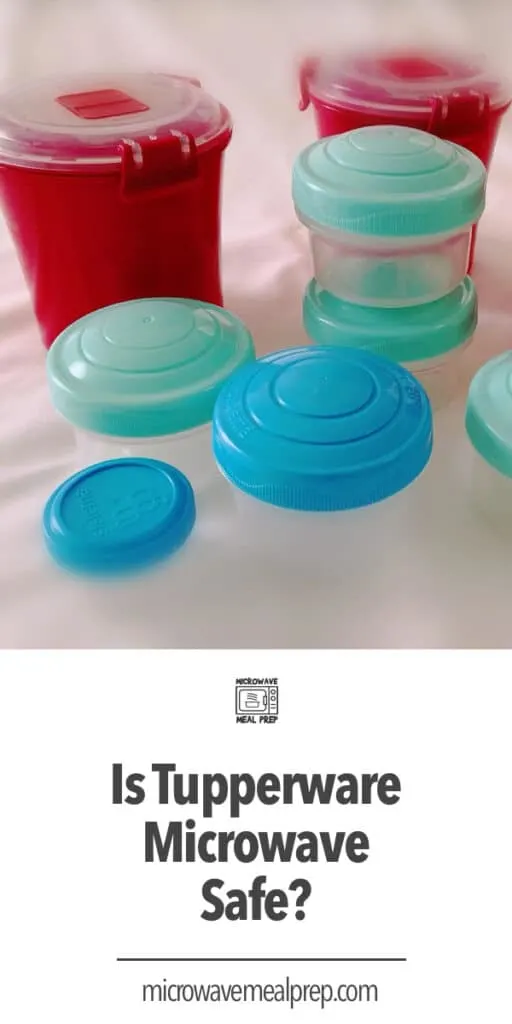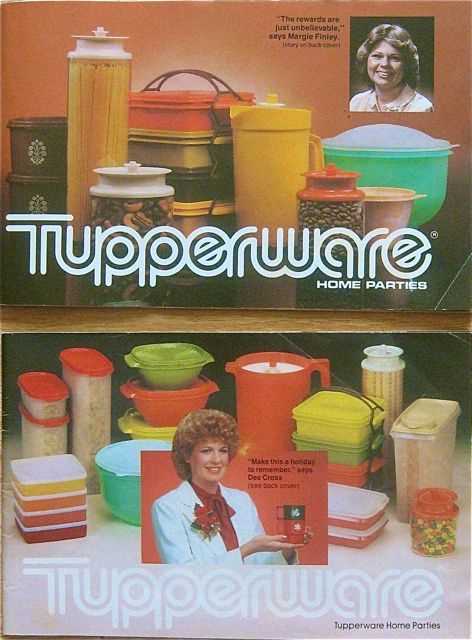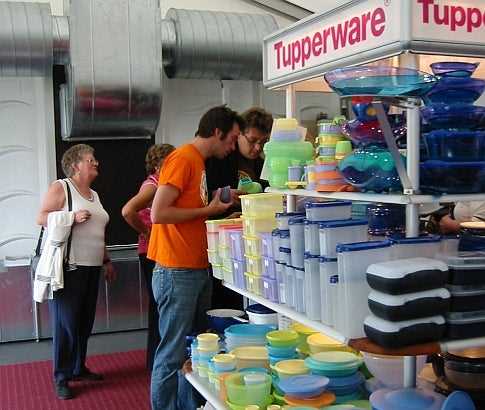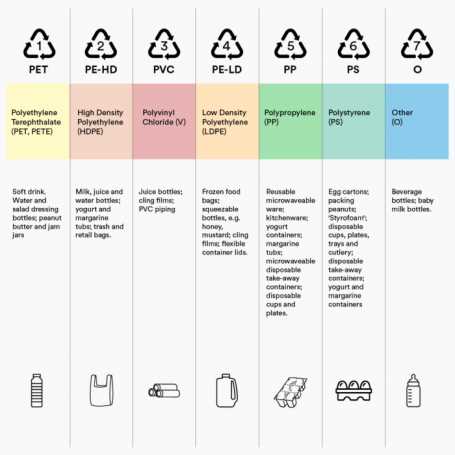Tupperware has been a staple in kitchens across the world for decades. With its convenient storage solutions and durable construction, it has become a go-to choice for many households. However, there has been ongoing debate about the safety of using Tupperware for food storage. In this article, we will explore the important facts you should know about Tupperware to help you make an informed decision.
One of the main concerns regarding Tupperware is its potential to leach harmful chemicals into food. Tupperware containers are made from a plastic called polypropylene, which is generally considered safe for food contact. However, under certain conditions, chemicals like bisphenol A (BPA) and phthalates can potentially migrate from the plastic into the food.
It is important to note that Tupperware has made significant strides in eliminating harmful chemicals from their products. Today, most Tupperware products are BPA-free, meaning they do not contain this potentially harmful chemical. Additionally, Tupperware uses rigorous testing and quality control measures to ensure their products meet the highest safety standards.
While Tupperware is generally safe to use, it is essential to follow the manufacturer’s instructions for proper use and care. Avoid using Tupperware in the microwave unless it is explicitly labeled as microwave-safe. Similarly, avoid using Tupperware to store hot or acidic foods, as this can increase the potential for chemical leaching. By following these guidelines, you can minimize any potential risks associated with Tupperware use.
In conclusion, Tupperware is generally considered safe to use for food storage. However, it is crucial to be aware of the potential risks and take necessary precautions. By choosing BPA-free Tupperware and following the manufacturer’s instructions, you can enjoy the convenience and reliability of Tupperware while ensuring the safety of your food.
- Facts about Tupperware Safety
- Tupperware Materials: What You Need to Know
- Understanding Tupperware Guidelines and Labels
- The Importance of Temperature and Tupperware
- FAQ:
- Is Tupperware safe to use?
- What is Tupperware made of?
- Can Tupperware be used in the microwave?
- Are there any potential health risks associated with using Tupperware?
- Is it safe to store hot food in Tupperware?
- Is Tupperware safe for microwave use?
- Can I put hot food in Tupperware?
Facts about Tupperware Safety

When it comes to using Tupperware, it’s important to know the facts about its safety. Here are some important things to consider:
1. BPA-Free:
Tupperware products are made using materials that are free from BPA (Bisphenol A), a chemical commonly found in plastic products. BPA has been linked to potential health risks, such as hormonal imbalances and other negative effects on the human body. By using BPA-free Tupperware, you can reduce your exposure to this chemical.
2. Microwave-Safe:
Many Tupperware products are designed to be microwave-safe, allowing you to safely heat up your food without worrying about harmful chemicals leaching into your meals. However, it’s important to follow the instructions and recommendations provided by Tupperware for specific products, as some may not be suitable for high-heat microwave use.
3. Dishwasher-Safe:
Tupperware containers are typically dishwasher-safe, making them easy to clean and convenient for everyday use. However, it’s important to use the appropriate settings and avoid using harsh chemicals or abrasive scrubbers that may damage the containers.
4. Durability:
Tupperware is known for its durability and long-lasting quality. The products are designed to withstand regular use, including repeated heating and cooling cycles, without cracking or warping. This makes Tupperware a reliable choice for storing and reheating food.
5. Sealable and Airtight:
Tupperware containers feature airtight seals that help to keep food fresh for longer periods. These tight seals prevent air and moisture from entering the containers, reducing the chances of food spoilage and contamination. It’s important to ensure the seals are intact and in good condition for optimal food storage.
6. Food-Safe Materials:
Tupperware products are made using food-safe materials, ensuring that they do not release harmful chemicals into your food. However, it’s still important to follow food safety guidelines and avoid storing highly acidic or oily foods for extended periods of time, as these may cause staining or odor retention in the containers.
In conclusion, Tupperware is generally considered safe to use due to its BPA-free composition, microwave and dishwasher-safe features, durability, airtight seals, and food-safe materials. By following the safety guidelines provided by Tupperware, you can enjoy the benefits of using these convenient and long-lasting containers.
Tupperware Materials: What You Need to Know

When it comes to Tupperware, understanding the materials used in its production is important for making informed decisions about its safety. Tupperware products are primarily made from three types of materials:
- Polyethylene (PE): This is the most common material used in Tupperware products. Polyethylene is a type of plastic that is considered safe for food storage. It is known for its durability and resistance to chemicals. Tupperware made from polyethylene can be used in the microwave, dishwasher, and freezer without any concerns.
- Polypropylene (PP): Another commonly used material in Tupperware, polypropylene is a food-safe plastic that is known for its high heat resistance. Tupperware made from polypropylene can withstand higher temperatures compared to polyethylene, making it suitable for microwave use. It is also dishwasher and freezer safe.
- Polycarbonate (PC): This material is used in some Tupperware products, particularly ones made for high-temperature applications such as baking. However, concerns have been raised about the potential leaching of the chemical bisphenol A (BPA) from polycarbonate plastics. As a result, Tupperware discontinued the use of polycarbonate that contains BPA in 2010. Any Tupperware products made with polycarbonate after that date are BPA-free and considered safe for use.
In addition to these main materials, Tupperware products may also contain other additives and modifiers to enhance their performance and durability. These additives undergo rigorous testing to ensure their safety and compliance with food contact regulations.
It’s worth noting that Tupperware products are designed to be reusable and durable, which helps reduce waste from single-use plastic containers. By investing in Tupperware, you can make a positive impact on the environment while enjoying the convenience and safety of storing your food in a trusted brand.
However, it’s always recommended to follow the usage instructions provided by Tupperware to ensure the longevity and safety of the products. Avoid using Tupperware products in the oven or on open flames, as they are not designed for direct heat exposure. Furthermore, it’s essential to regularly inspect your Tupperware products for signs of wear and tear and replace them as needed to maintain their quality and safety.
In conclusion, Tupperware materials are carefully selected to ensure the safety and functionality of their products. With the right care and usage, Tupperware can be a reliable and safe choice for your food storage needs.
Understanding Tupperware Guidelines and Labels

When it comes to using Tupperware, it’s important to understand the guidelines and labels provided by the company. These guidelines are designed to ensure that you use the products safely and effectively.
Tupperware products are typically made from high-quality plastic materials that are safe for food storage. However, it’s important to follow the guidelines to avoid any potential risks.
One important guideline to keep in mind is that Tupperware products should not be used in the microwave unless they are specifically labeled as microwave-safe. Using Tupperware in the microwave without proper labeling can cause the plastic to warp or melt, potentially contaminating your food.
Additionally, Tupperware products should not be used to store or heat foods that are high in fat or oil, as these substances can cause the plastic to deteriorate over time. It’s also recommended to avoid using sharp utensils or abrasive cleaners on Tupperware, as they can scratch or damage the plastic.
When washing Tupperware, it’s best to use mild dish soap and warm water. While Tupperware products are generally dishwasher-safe, handwashing can help prolong their lifespan. It’s important to thoroughly dry Tupperware before storing it to prevent any potential moisture buildup.
Furthermore, Tupperware products come with labels that provide important information about their use and care. These labels indicate whether the product is microwave-safe, freezer-safe, or dishwasher-safe. They may also include instructions for proper use and storage.
By understanding and following the guidelines and labels provided by Tupperware, you can ensure that you use their products in a safe and effective manner. This will help you enjoy the convenience and durability of Tupperware while keeping your food and health in mind.
The Importance of Temperature and Tupperware

When it comes to storing food, temperature plays a crucial role in ensuring its safety and quality. This is especially true when using Tupperware containers.
Tupperware containers are designed to withstand a wide range of temperatures, both hot and cold. This makes them perfect for storing various types of food, from leftovers to meal preps. However, it is important to note that extreme temperatures can affect the safety of your food and the integrity of your Tupperware.
When storing hot food in Tupperware, make sure the food has cooled down to room temperature before placing it in the container. This is because exposing the container to extreme heat can cause it to warp or even melt, compromising its effectiveness and potentially releasing harmful chemicals into your food.
On the other hand, when using Tupperware to store cold food, it is important to keep it refrigerated or chilled. Cold temperatures help slow down the growth of bacteria and other microorganisms that can cause foodborne illnesses. Make sure to seal the container tightly to maintain freshness and prevent contamination.
Additionally, avoid placing Tupperware containers in the freezer unless they are specifically labeled as freezer-safe. Freezing Tupperware containers that are not designed for freezing can lead to cracking and breakage, rendering them unusable.
In conclusion, temperature plays a significant role in the safety and functionality of Tupperware containers. By following the recommended temperature guidelines and properly caring for your Tupperware, you can ensure that your food remains safe and of high quality.
FAQ:
Is Tupperware safe to use?
Yes, Tupperware is generally considered safe to use.
What is Tupperware made of?
Tupperware is made of a type of plastic called polyethylene, which is known for its durability and resistance to chemicals.
Can Tupperware be used in the microwave?
Yes, Tupperware containers are microwave-safe and can be used to heat food.
Are there any potential health risks associated with using Tupperware?
No, Tupperware is made from food-grade plastic and does not contain harmful chemicals like BPA.
Is it safe to store hot food in Tupperware?
Yes, Tupperware is designed to withstand high temperatures and can safely be used to store hot food.
Is Tupperware safe for microwave use?
Yes, Tupperware products are safe for microwave use. They are specially designed to withstand high temperatures and won’t leach any harmful chemicals into your food.
Can I put hot food in Tupperware?
Yes, you can put hot food in Tupperware containers. They are made from heat-resistant materials that can withstand high temperatures without warping or melting.